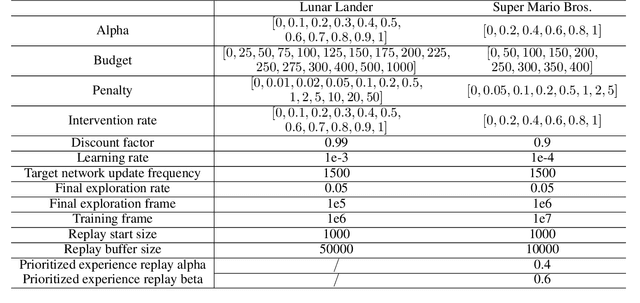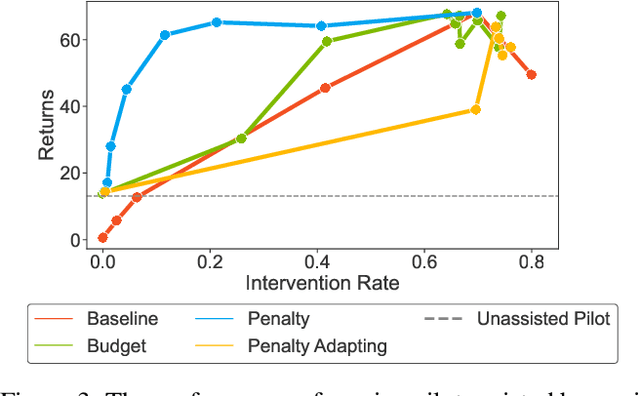Siddhant Pradhan
On Optimizing Interventions in Shared Autonomy
Jan 01, 2022



Abstract:Shared autonomy refers to approaches for enabling an autonomous agent to collaborate with a human with the aim of improving human performance. However, besides improving performance, it may often also be beneficial that the agent concurrently accounts for preserving the user's experience or satisfaction of collaboration. In order to address this additional goal, we examine approaches for improving the user experience by constraining the number of interventions by the autonomous agent. We propose two model-free reinforcement learning methods that can account for both hard and soft constraints on the number of interventions. We show that not only does our method outperform the existing baseline, but also eliminates the need to manually tune a black-box hyperparameter for controlling the level of assistance. We also provide an in-depth analysis of intervention scenarios in order to further illuminate system understanding.
Relaxed Marginal Consistency for Differentially Private Query Answering
Sep 13, 2021


Abstract:Many differentially private algorithms for answering database queries involve a step that reconstructs a discrete data distribution from noisy measurements. This provides consistent query answers and reduces error, but often requires space that grows exponentially with dimension. Private-PGM is a recent approach that uses graphical models to represent the data distribution, with complexity proportional to that of exact marginal inference in a graphical model with structure determined by the co-occurrence of variables in the noisy measurements. Private-PGM is highly scalable for sparse measurements, but may fail to run in high dimensions with dense measurements. We overcome the main scalability limitation of Private-PGM through a principled approach that relaxes consistency constraints in the estimation objective. Our new approach works with many existing private query answering algorithms and improves scalability or accuracy with no privacy cost.
 Add to Chrome
Add to Chrome Add to Firefox
Add to Firefox Add to Edge
Add to Edge